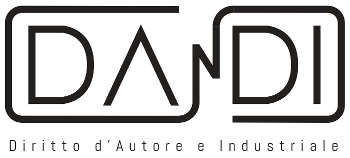Trade Secrets in Italy:
DIRECTIVE (EU) 2016/943 OF THE EUROPEAN PARLIAMENT AND OF THE EU COUNCIL
of June 8th 2016
on the protection of undisclosed know-how and business information (trade secrets) against their unlawful acquisition, use and disclosure
“What is the current Italian legislative situation?”
Article written by Dott. Domenico Piero Muscillo
The current Italian legislative situation:
On June 8th 2016 the EU Parliament and the EU Council have approved the Directive n. 943/2016. This legal act, as of Article 20 (“This Directive shall enter into force on the twentieth day following that of its publication in the Official Journal of the European Union”) has come into force on July 5th 2016. Member States have a maximum of 2 years to incorporate the Directive’s provisions into domestic law.
What are the two objectives pursued by the EU Directive?
The EU Directive aims to protect one of the most important asset of an enterprise: trade secrets. The EU legislator and national legislators (in this particular case the Italian legislator) have understood the importance of personal data, especially those of the employee, and therefore have already put into effort their defense by way of several provisions of the Italian Data Protection Authority, with the approval of the Data Protection Act and last but not least by approving the GDPR (General Data Protection Regulation – 2016/679), by the EU Parliament and by the EU Council, which has come into force on May 25th 2016 and will become effective after 2 years.
Due to the fact of a lack of trade secrets protection provided by the legislator, hence judges, by means of several decisions, have created a vast jurisprudence in order to point out the most relevant principles in theme.
The above mentioned EU Directive has been approved, by the EU Parliament and by the EU Council, in order to create a discipline against the unlawful acquisition, disclosure and use of trade secrets.
The two objectives pursued by this Directive are:
- the protection of the planned investments concerning the acquisition, development and application of know-how and business information (trade secrets);
- it aims to encourage the transfer of these information among enterprises in order to simplify, in the EU, the cooperation among them;
In order to fulfill the given purposes, the legislator has given a uniform definition of “trade secret” that includes every kind of trade secret which complies with three features:
- secrecy;
- due to their secrecy are characterized by a commercial value;
- the entrepreneur must keep them under sensible measures in order to guarantee their protection;
This definition is similar to the one provided by article 39, PART II STANDARDS CONCERNING THE AVAILABILITY, SCOPE AND USE OF INTELLECTUAL PROPERTY RIGHTS – SECTION 7: PROTECTION OF UNDISCLOSED INFORMATION (Natural and legal persons shall have the possibility of preventing information lawfully within their control from being disclosed to, acquired by, or used by others without their consent in a manner contrary to honest commercial practices so long as such information: (a) is secret in the sense that it is not, as a body or in the precise configuration and assembly of its components, generally known among or readily accessible to persons within the circles that normally deal with the kind of information in question; (b) has commercial value because it is secret; and (c) has been subject to reasonable steps under the circumstances, by the person lawfully in control of the information, to keep it secret.) provided by the TRIP’s Agreement and by the definition provided by article 98 of the Italian Industrial Property Code (which I will talk about further).
The Directive however does not provide any kind of protection to “negligible business information”. Are referable to the above mentioned type of information all kind of general knew information or which can be easily acknowledged and even know-how acquired by employees during the execution of their job. Moreover the Directive provides examples of acquisition, use and disclosure of trade secrets which are lawful.
The EU Parliament and the EU Council have decided to approve a Directive and not a Regulation in order to ensure the protection of undisclosed know-how and business information (trade secrets) against their unlawful acquisition, use and disclosure. The legal effects of this decision are very important, because on every EU member State rests the onus to incorporate the Directive’s provisions into domestic law, (i.e. the measures, procedures and remedies which are necessary to ensure the availability of civil remedies in order to act against the illegal acquisition, use and disclosure of trade secrets).
All remedies have to be inspired by three principles: fairness, effectiveness and deterrence, besides the fact that they do not have to be unnecessarily complicated, costly and do not incorporate any kind of unreasonable time limits and unwarranted delays. On the other hand the right to file a claim, concerning this theme, does not have to unlimited in time, therefore the limitation period for claims will not exceed six (6) years in order to guarantee a sense of justice. The legislator has also provided, where necessary, that the confidentiality of trade secrets, during the course of and after legal proceedings, will be preserved.
In light of the decision took by the EU legislator (the approval of a Directive instead of a Regulation) the leitmotiv of the above mentioned Directive may be: “No one size fits all across the EU”. This means that across EU member States there will not be an identical trade secret legislation, as of June 2018, because every legislator may decide to take “reasonable steps”, in order to protect a trade secret, which may vary or not (depends on what the legislator decides to provide) from a jurisdiction to another.
This because of the different background and experience in business information protection which distinguish every EU member state. Secondly the EU Directive on trade secrets sets minimum standard for all EU member states to implement. Therefore a member state could decide to provide a legislation which goes beyond these minimum standards and could decide to compare other legislations (i.e. the US “Defend Trade Secrets Act”, and determine to copy certain aspects of that powerful law). Thirdly, the EU Directive covers only civil law. In light of the fact that it is a Directive, member states may decide therefore to provide for additional sanctions to infringers in the field of criminal law. Some EU member states will definitely do so, and provide such additional sanctions to infringers.
It all depends on the different level of awareness of the importance of IP which varies among EU members. This is an aspect which has to be considered relevant.
In Italy what is considered a “trade secret”?
In Italy, undisclosed know-how and business information are protected under two provisions of the Industrial Property Code (CPI): article 98 and article 99. In addition it is disciplined by the unfair competition legislation provided by article 2598 of the Italian Civil Code and by article 623 of the Italian Criminal Code. The first one provides that every kind of business information, technical-industrial and business know-how, which are undisclosed (therefore kept secretly and not easily accessible) and do have an economic value (due to their secrecy) are protected by trade secrets. It is important that businesses have adopted all kind of measures to keep secret these type of information. Moreover all data related to facts or to other secrets, which elaboration implicate a substantial commitment, are considered protectable by trade secret. According to article 98 subparagraph 2, all data representing the result of experiments or other kind of secret information, are considered object of protection. In particular the protection is granted to the abovementioned kind of data in case their publication is subject to obtaining an authorization to launch in the market chemical, pharmaceutical and agricultural products which do contain new chemicals.
The second one states that the legislation on unfair competition still holds whoever is the owner of those business information, technical-industrial and business know-how (i.e. the entrepreneur). This individual has the right to prohibit third parties, unless given consent, to achieve the abovementioned information and know how through unauthorized acquisition, disclosure and unauthorized use. It is not possible for the owner to prohibit the use of the abovementioned information in case the third party has obtained those information independently.
The third article prescribes, at the third subparagraph, a typical act which is considered an act of unfair competition. Precisely it describes the case where directly or indirectly anyone uses any other mean which do not complies with the principles of professional fairness and it is able to harm other people’s company.
Moreover Article 623 of the Italian Criminal Code punishes, by imprisonment up to 2 years, whoever reveals or uses business information in order to pursue an own or a third-party profit.
This is the legal frame concerning the current Italian legislative situation concerning the protection of undisclosed know-how and business information (trade secrets) against their unlawful acquisition, use and disclosure.
Italian Courts have faced, several times, legal cases where it was considered in the merit the protection of trade secrets.
In one particular occasion the Companies’ Court of the Court of First Instance of Bologna (a specialist division specialized in industrial and intellectual property) has, in an important decision (on July 27th 2015, n. 2340/15) regarding a legal case concerning trade secret protection, recalled all the principles concerning business information protection which do represent a sort of bedrock of the Italian jurisprudence.
Specifically the above mentioned Companies’ Court remembered that “undisclosed know-how are granted protection both under article 98 and 99 IPC (CPI) and by article 2598 subpar. 3 of the Italian Civil Code (unfair competition)”.
Recently two important cases have been decided, one by the Italian Supreme Court – Corte di Cassazione (on October 24th 2017, n. 25147/17) and the other one by the Court of first instance of Milan (on February 27th 2017, n. 2302/17).
The first decision provides two very important principles: the first one “insignificance of the loss”: the act of copying business information, even in the case it does not consist in any kind of loss to the enterprise, or entrepreneur is irrelevant. In light of the law what matters is that the act of copying on a USB pen drive (in this particular case) business information (not protected by a password), does represent an act which could potentially represent a danger for the enterprise. Therefore, the act of the employee who copies on a USB pen drive business information – removing it from the “sphere of control” of the entrepreneur – is considered punishable by justified dismissal even in the case those information have not been disclosed. The second one “the extension of the protection granted not only to trade secrets – in a narrow sense – but it is comprehensive of all kind of business information which every employee has access to”. The above mentioned decision states, concerning this aspect, that providing the protection only to information and data which secrecy is shielded by a password, will force the entrepreneur to keep under secrecy, therefore safeguarded by a password, every kind of information. This will cause a slowdown of the whole working process inside the enterprise.
The second decision provided by the Court of First Instance of Milan, which has been previously stated than the decision of the Supreme Court, states that “The judicial remedies provided by articles 98 and 99 IPC (CPI) and the one provided in theme of unfair competition are all connected. Therefore the discipline provided by article 2598 subpar 3 of the Italian Civil Code are enforceable in all cases, whether data, files and business information do not have the features which characterize trade secrets. This is the case of business information which are not shielded in a proper way”.
The Italian Industrial Property Code provides three type of judicial remedies in case of violation of trade secrets.
These remedies are disciplined by:
- Article 125 (“Compensation for damages and return of profits by the author of the violation”). This Article is particular due to the fact that it allows, in any case, the right holder which right has been violated to demand as alternative to the compensation of loss of profits or in case they exceed the amount of damages, the return of the earnings made by the author of the violation.
- Article 129 (“Description and seizure”). This Article provides, under the first subparagraph that the right holder may request to the Court the descriptive procedure or the seizure (even a seizure dependent on the descriptive procedure) of some or of all products which do violate that right, as well as the instruments used to produce those products and all the evidence referring to the denounced violation and its importance. Suitable measures are adopted in order to protect undisclosed information.
- Article 131 (“Court injunction”). This Article provides that the right holder may request to Court to order a court injunction regarding any kind of violation, continuation and repetition of these violations, which do affect his right. In particular the abovementioned individual may demand that the requested court injunction has to be approved in order to cease the manufacture, the sell and the use of goods which do represent a violation of the right. In addition, according to the articles of the Code of Civil Procedure regulating emergency precautionary procedures, it may be ordered the withdraw from the market of the same goods from the owner or form who may dispose them. The court injunction and the order to withdraw goods from the market may be requested, basing on the same premises, against any person which do provide services that represent a violation of industrial property rights. The provision in question states that when the Court orders a court injunction, it may also order the payment of a due amount in case of certified violation or non-compliance following the court order and for every delay in implementing the court injunction order.
The Italian Civil Code provides two type of judicial remedies:
- “AZIONE EXTRACONTRATTUALE PER CONCORRENZA SLEALE ART. 2600 C.C – RISARCIMENTO DEL DANNO”: this judicial remedy can be translated in English as like “unfair competition torts under art. 2600 of the Italian Civil Code – monetary revenge”. It is foreseen that the author of a tort is obliged to compensate damages if unfair competition practice has been committed using intentional fault or negligence. In this case it may be ordered the publication of the court decision. Moreover, once this practice has been verified, negligence is presumed.
- “ART. 2599 C.C. – INIBITORIA”: this article provides that the court decision, once it has been confirmed that unfair competition practice has been committed, inhibits the continuation of this practice and orders the necessary measures in order to remove the produced effects.
- Article 2105 of the Italian Civil Code (C.C.) represents a very important provision due to the fact that it provides a fundamental principle (“employee’s duty of loyalty to an employer”) which is why the employee cannot do business – by its own or in favor of third persons – which do enter in competition with the entrepreneur. In addition this individual cannot either disclose any kind of business information (e.g. regarding the organization of work inside the firm and the production methods used) or exploit them in a way which may harm the firm.
Disciplinary sanctions:
In case of an invention made by the employee during a business relationship, this individual has the right to be recognized as the author of the invention (art. 2590 Italian Civil Code). It is important however to highlight two scenarios:
- The first one concerns the case where the invention represents the core of the business relationship and the individual therefore gets paid. Consequently in this case, all the rights related to the invention belong to the employer. The employee however is entitled of the right to be recognized as the author of the invention. This is what article 64 subparagraph 1 of the Italian Industrial Property Code states;The second one concerns instead the case where the invention is not paid and therefore all the related rights belong to the employer, under the condition that, as written previously, the employee has the right to be recognized as the author of the invention, besides the fact of being eligible to receive a fair bonus in case the entrepreneur decides to request the Patent and Trademark Office for a patent application regarding the invention or in case the employer uses the invention under a regime of industrial secrecy. This is what article 64 subparagraph 2 of the Italian Industrial Property Code requests.
BIBLIOGRAPHICAL SOURCES
- http://www.uibm.gov.it/attachments/codice_aggiornato.pdf
- http://www.picchieassociati.it/ENG/more-details/the-italian-law-system
- http://www.canestrinilex.com/resources/italian-system/
- http://www.diritto24.ilsole24ore.com/art/avvocatoAffari/mercatiImpresa/2015-09-01/il-tribunale-bologna-tutela-know-how-171007.php
- http://www.uibm.gov.it/attachments/MISE%20ACADEMY%20Presentazione%20Segreto%20Industriale.pdf
- https://www.theinnovationgroup.it/research-news/newsletter/voci-dal-mercato/la-nuova-direttiva-ue-sulla-protezione-del-know-riservato-dei-segreti-commerciali/?lang=it
- https://www.digital4trade.it/generale/trade-secrets-cosa-cambia-con-la-nuova-direttiva-europea/#il-recepimento-in-italia
- http://www.senato.it/japp/bgt/showdoc/17/DOSSIER/1025018/index.html?stampa=si&part=dossier_dossier1-sezione_sezione10
- http://www.senato.it/leg/17/BGT/Schede/Ddliter/48060.htm
- http://www.senato.it/leg/17/BGT/Schede/Ddliter/testi/48060_testi.htm
- http://www.senato.it/japp/bgt/showdoc/17/DDLPRES/1023520/index.html
- https://www.linkedin.com/pulse/la-nuova-direttiva-ue-sulla-protezione-del-know-how-e-elena-vaciago/
- https://tonucci.com/pubblicata-la-direttiva-europea-sulla-protezione-del-know-how/
- http://www.rivistaodc.eu/edizioni/2016/2/saggi/prospettive-di-adeguamento-del-diritto-italiano-alla-direttiva-trade-secrets/
- http://www.palombarini-mantegazza.it/tutela-delle-informazioni-top-secret-segreto-industriale.html
- http://registrare-marchio.com/en/unfair-competition-in-the-italian-civil-code/
- http://www.brocardi.it/codice-civile/libro-quinto/titolo-x/capo-i/sezione
- ii/art2599.htmlutm_source=internal&utm_medium=link&utm_campaign=articolo&utm_content=nav_art_prec_dispositivo
- http://www.diritto24.ilsole24ore.com/art/avvocatoAffari/mercatiImpresa/2015-09-01/il-tribunale-bologna-tutela-know-how-171007.php
- http://www.uibm.gov.it/attachments/MISE%20ACADEMY%20Presentazione%20Segreto%20Industriale.pdf
- http://channels.theinnovationgroup.it/cybersecurity/nuova-direttiva-ue-protezione-segreti/
- http://www.portolano.it/pcc_newsletters_corp/specialist-division-for-company-related-disputes/
- http://www.studiolegalebellei.it/studio-legale-bellei-novita-giurisprudenziali/29-il-procedimento-di-descrizione-nel-diritto-industriale.html
- http://en.camera.it/4?scheda_informazioni=2
- https://www.studiocerbone.com/corte-cassazione-sentenza-24-ottobre-2017-n-25147-licenziamento-giusta-causa-sottrazione-dati-aziendali-gravita-incidenza-sul-vincolo-fiduciario-irrilevanza-dellavvenuta-divulgaz/
- https://www.senato.it/japp/bgt/showdoc/17/DOSSIER/1036138/index.html?part=dossier_dossier1-sezione_sezione31-h2_h212&aj=no&spart=si
- https://www.tuttocamere.it/files/newsletter1/Newsletter_33_2017.pdf
- http://www.sternzanin.it/wp-content/uploads/Cass-25147-2017.pdf
- http://www.altalex.com/documents/news/2017/11/10/copia-i-file-aziendali-su-pen-drive-si-al-licenziamento-per-giusta-causa
- https://www.toffolettodeluca.it/it/notizie-eventi/notizie-eventi/a/la-tutela-dei-segreti-aziendali/
- http://www.itespresso.it/protezione-know-how-e-segreti-industriali-litalia-come-recepira-la-direttiva-130140.html?inf_by=5a3e01e8681db8b95c8b45d0
- https://www.bbmpartners.com/news/nuova-direttiva-ue-segreti-commerciali-2016
- https://www.wto.org/english/docs_e/legal_e/27-trips.pdf
- http://www.uibm.gov.it/index.php/normativa-generale/leggi-e-decreti/394-normativa/leggi-e-decreti/2005763-10-02-2005-decreto-legislativo-10-febbraio-2005-n-30
- http://www.parlamento.it/parlam/leggi/deleghe/05030dl.htm
- https://www.linkedin.com/pulse/eu-directive-trade-secrets-does-mean-identical-secret-donal-o-connell/
Dandi Law Firm provides legal assistance in Copyright. Check out our Services or contact Us!





